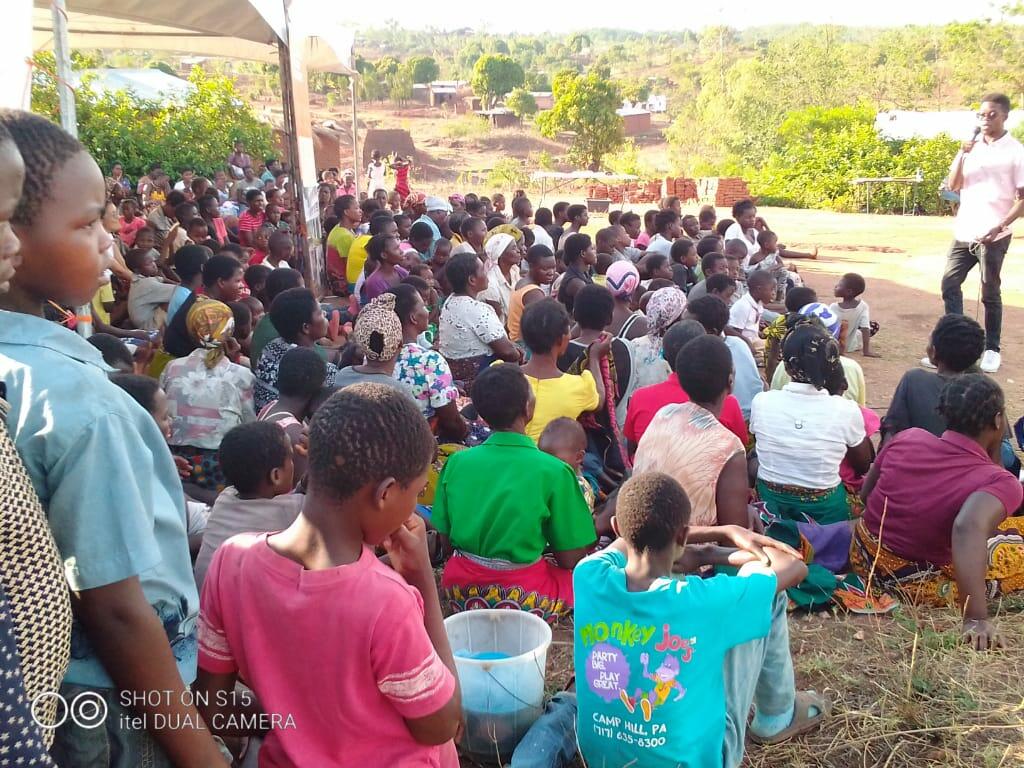
By Sepeedeh Saleh and Henry Sambakunsi
A single mother of four is up before 5 o’clock in the morning. She lights up her three-stone fire, tucks in a good bundle of firewood and bends down to blow on the fire, eyes half-closed against the smoke. With the fire lit she puts on a big bucket of water for the children to bathe before going to school.
This is how every day begins for Grace and this fire is just the first of many that will be lit throughout her day for various purposes from porridge for breakfast, to nsima, a Malawian maize meal, for supper: plenty of smoke for her lungs and those of her young family.
This routine is not unique to Grace, this is a way of life for residents across rural Malawi. Researchers in the PAMODZI project – meaning “together” in Chichewa – have been using ethnography and participatory work to consider the issue of air pollution in the area, and a specially adapted video screened at a community meeting has now put this project on the ‘BreatheLife’ map.
Months spent in participant observation with village residents revealed deep insights into the role of cooking and smoke in the village community. During one cooking session a couple of women burst out laughing at the researcher coughing and spluttering her way through an attempt to cook nsima on the fire exclaiming, “this is being a woman: you cannot cook without smoke!”
Deeper community engagement revealed many in the village do not see smoke as a health threat beyond the ‘irritating’ immediate symptoms such as coughing, stinging eyes, and runny nose. This led the research team to hold a community meeting, aiming both the widen knowledge about the health impacts of air pollution, and to discuss plans for the next stages of the research project
A video produced by the BreatheLife network was identified as a useful tool for knowledge-sharing about air pollution and its’ impacts and researchers contacted the network to discuss its use within the project. With the help of the transcription and translation team at the Malawi-Liverpool Wellcome Trust research programme (MLW) where the project is based, researchers adapted and translated the video, making sure it spoke clearly to Malawians living in rural areas. This involved small changes to the way medical phenomena were described and editing to achieve a Chichewa transcript which fitted the compact length of the video.
The community meeting was planned in conjunction with the local chiefs, community health volunteer, and the science communications team at MLW. There were talks, dances, discussions, and opportunities to see and hold air quality monitors used in the study. The atmosphere was vibrant, with large numbers of men, women and children taking part throughout the afternoon. In the evening, the video show was screened to a large audience of mostly young adults from the village. The messages about air pollution were received with interest from members of the audience and stimulated much discussion in the village in subsequent weeks.
In the time following this meeting, the translated video was made freely available online via BreatheLife website, and researchers were interviewed by Abraham Mwaura from the network, explaining more about the project aims and methods, and their progress thus far. A feature about the project is now on the Breathelife network too.
Participatory theatre workshops in the village following the meeting have seen researchers and community members work together in a shared space to explore the challenges around air pollution in the village and to consider how cleaner air might be achieved.
Ethnographic and participatory approaches have stood front and centre of the PAMODZI project, illuminating the ways in which air pollution exposures and our efforts to impact them are shaped by factors in our social and cultural environments.
These insights have set the stage for meaningful conversations around next steps for air pollution reduction in rural Malawi. Qualitative and anthropological methods like these, taught in the MSc Global Health programme at LSTM, have much to offer global health in the coming years.
The PAMODZI researchers are excited to be sharing their experiences through media networks as well as the usual academic and professional paths, and grateful to the BreatheLife network for their role in making this happen.